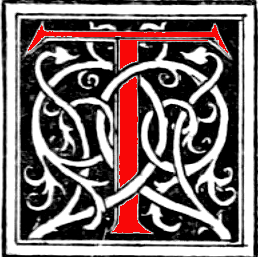
he Victorian age was characterised by social, technological, scientific, religious, and cultural transformation. As we have lived with the Victorians, our view of them has in turn transformed, with the concept of ‘transformation’ itself proving mutable. This conference will engage with the idea of transformation both as applied to the Victorians, and in Victorian Studies. Taking a thoroughly interdisciplinary approach, the conference seeks to explore both the changes taking place in society and personal consciousness during the long nineteenth century, and the changing constructions and interpretations of the Victorian age.
Organized as a collaboration between the Leeds Centre for Victorian Studies (LCVS) and the Charlotte M. Yonge Fellowship (CMYF), the conference coincides with the bicentenary of the novelist Charlotte M. Yonge (1823–1901). It is intended that she will feature prominently in the discussions, as a writer whose exceptionally long literary career captured the many changes of the period, and whose reception history has been so suggestively varied. Once seen as a writer with ‘true realist chique’ (Henry James, 1865), she was later disparaged as old-fashioned and off-puttingly religious – even ‘fanatic’ (Q. D. Leavis, 1944) – before enjoying something of a renaissance in the twenty-first century. How and why have readings of her work changed, and how might a revisionary approach transform our view of ‘the Victorian’?
Proposals for 20-minute papers are sought, from Victorianists working in all disciplines and at all career stages, on topics including but not limited to:
- Transformations in the field of Victorian Studies: shifting attitudes to ‘the canon’; sea changes in scholarly approaches; changing conceptions of the Victorian in dates and places; changing critical assessments of specific authors, novels, or genres
- Nineteenth-century writers, artists, and poets whose careers spanned several decades: how do they react to and represent ‘transformation’?
- Personal ‘transformations’: Victorian figures whose political, social, religious or ethical views underwent ‘transformation’, in autobiography or their fiction
- Textual ‘transformations’: writers, publishers, readers and critics of Victorian form
- Reflections on the Victorian formation of disciplines
- Movements that have transformed the critical landscape
- Spaces and places: decentring transformation, global histories, landscapes, cities, countrysides, ‘Great’ houses, or other buildings ‘transformed’
- Acts of imaginative ‘transformation’: theatrical, artistic, cinematic adaptation
- The ‘transformed’ body: fashion, dress reform, changing notions of sex and sexuality
- Political, legal, and institutional ‘transformations’: legacies of systems, structure and infrastructure, disciplinary regimes
- ‘Transformations’ of science, engineering and technology: new positions on facts and artefacts, constructions of ‘the inventor’, failed futures
- Change and continuity in faiths, religious beliefs and attitudes
- Changing constructions of the Victorian during the twentieth and twenty-first centuries, in fiction, art, the media and the heritage industry
- How current responses to ‘race’/colonialism/climate change/gender/sex /(dis)ability might be ‘transformed’ by reference to the Victorians
- Changing priorities and policies of organisations such as the Victorian Society, the National Trust, the Historic Churches Fund, English Heritage
- All aspects of the life, work, and reception history of Charlotte M. Yonge
Abstracts of maximum 250 words should be sent to LCVS@leedstrinity.ac.uk by 31 January, 2023. Proposals for panels of papers are also welcome.
Created 12 January 2023